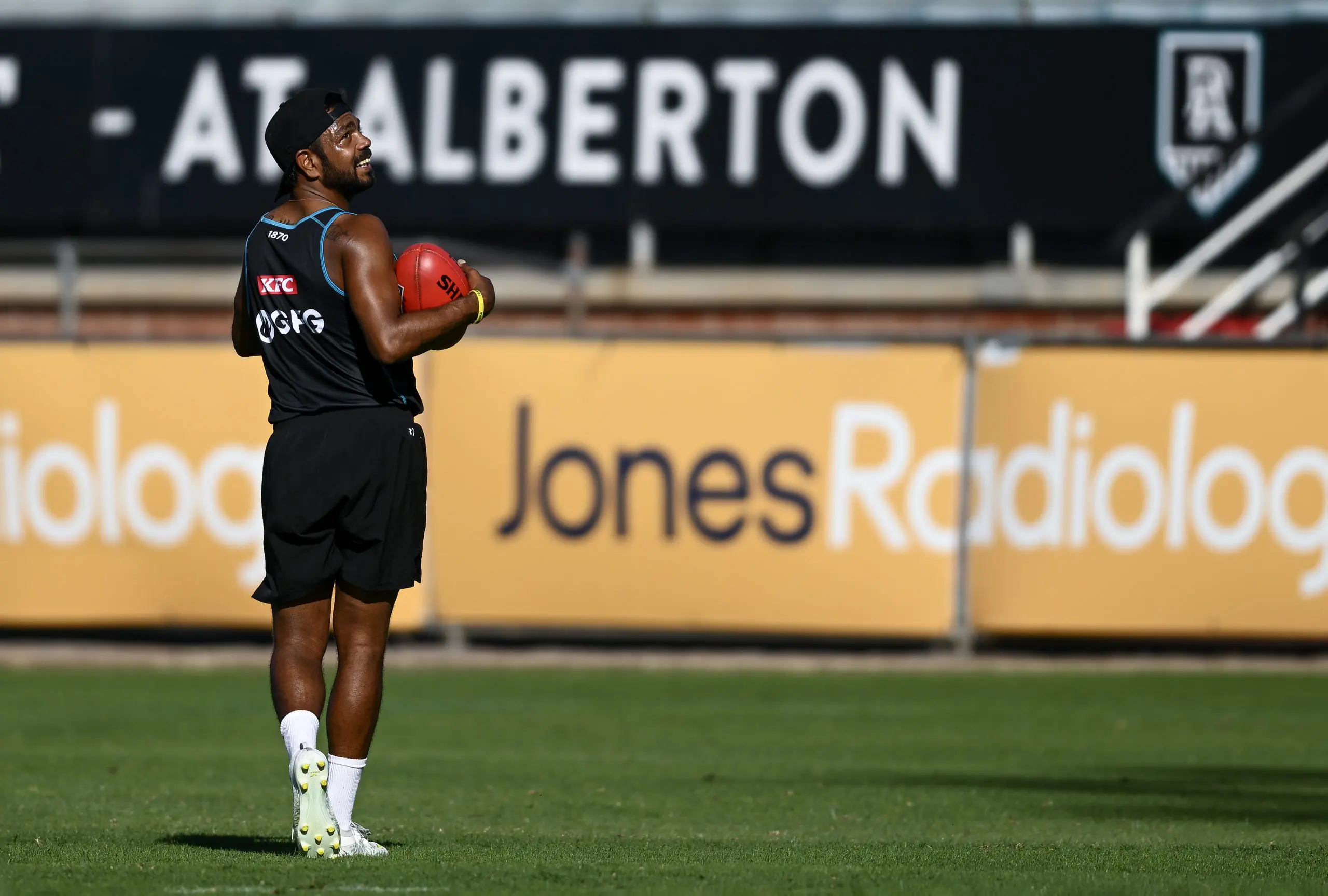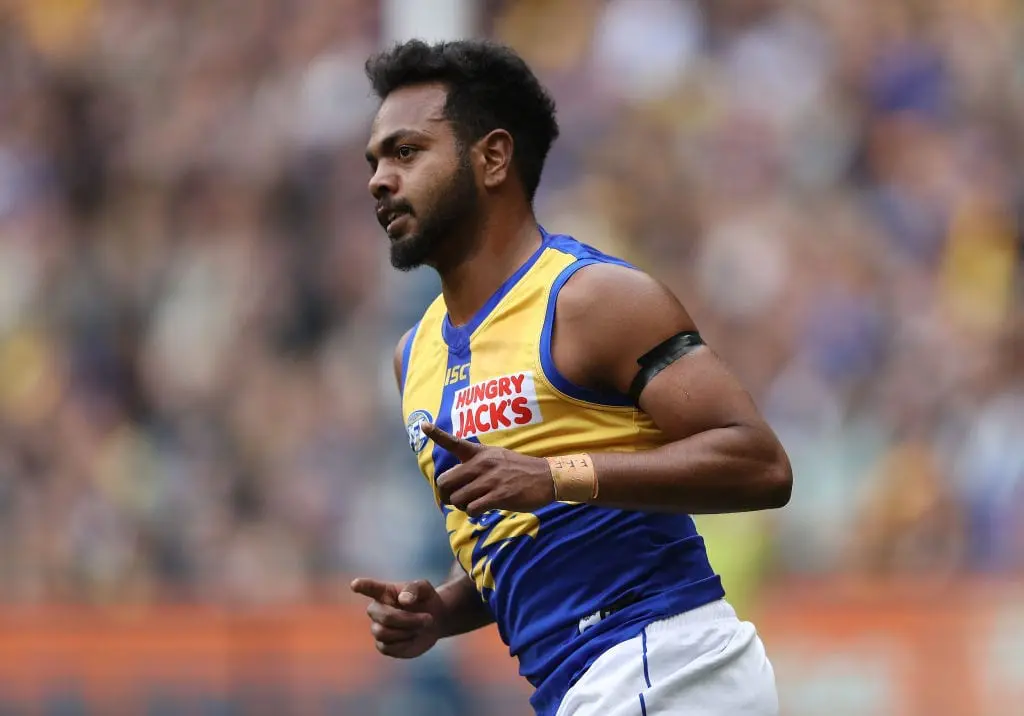Port Adelaide forward Willie Rioli says he has flirted with walking away from the AFL on multiple occasions, flagging that the scrutiny and abuse "gets to a point where it's a bit too much sometimes".
Rioli was suspended for one match earlier in the year and fined after news came to light that he'd threatened Western Bulldogs defender Bailey Dale, while two similar instances involving Archie Roberts and Brad Close were revealed.
The situation resulted in a war of words between the Power and Bulldogs, with powerbrokers at each club declaring their public support for their players.
But the fallout made Rioli contemplate his future in the competition, saying he didn't want to put "any more pressure on the club".

"Definitely it gets to a point where it's a bit too much sometimes," Rioli told Port's club podcast Peeled.
"And yeah, I have spoken to my manager and the club a couple of times about walking away from the game, which I am not shy to talk about.
"More so ... trying to not be putting any more pressure on the club. Get them out of the spotlight as well, in terms of not have to deal with my issues so much as a person off-field."
Rioli's past also came up in conversation during the podcast episode, and he spoke about his 18-month suspension during his time at West Coast for tampering with a urine sample.
The premiership Eagle admitted fault for his behaviours, but also took accountability for the club's potentially "not trusting Indigenous players," ultimately seeing a reduction in overall numbers in the league.
The number of Indigenous players has dropped to 62 this year, from a high of 87 in 2020.
"I know it's mainly because of COVID," Rioli said.
"I do hold a bit of blame myself a little bit for some of the stuff I have been through, in terms of clubs not trusting Indigenous players.

"I felt that was my driver to come back to footy ... be the light in terms of 'we can go through this'.
"I look at the drop in terms of Indigenous players in the competition ... that gives me the motivation to stick around longer, to help the next generation do better than what we are doing or what I am doing.
"I want the next (Indigenous) generation to be better than what we are right now.
"And I want them to have their confidence to make mistakes and not be judged by their mistakes."
Get set for the footy with the FREE Zero Hanger 2026 AFL Season Guide! Packed with 150+ pages of player profiles, team previews, insights and analysis, the 2026 AFL Season Guide is built for fans who want the full picture. Download your free Season Guide HERE.

















